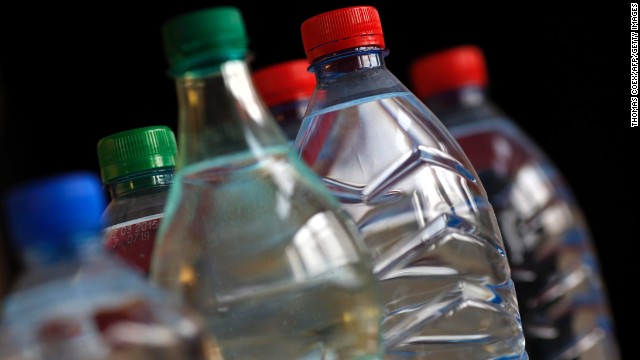Is bottled water safer?
updated 8:45 AM EST, Tue November 19, 2013
Many buy bottled water for its taste and portability. However, it's not necessarily safer for you than tap water.
STORY HIGHLIGHTS
- Bottled water isn't necessarily better than tap for your overall health
- Tap water is required to meet safety standards
- Well water is more likely to be contaminated
Editor's note: Editor's note: upwave is Turner Broadcasting 's new lifestyle brand designed to entertain the health into you! Visit upwave.com for more information and follow upwave on Twitter,Facebook, YouTube, Pinterest and Instagram @upwave.
(CNN) -- The rumor: You shouldn't trust tap water
Drinking plenty of water is important for your health, because it maintains bodily functions, carries nutrients to cells and helps you stay hydrated and energized.
But you've probably wondered: Is fancy bottled water somehow better for you than plain tap water? And is it even OK to drink tap water without using a water-filtration device?
The verdict: Both tap and bottled water meet safety standards
Many people believe that because bottled water goes through a filtration process that improves its taste, odor and color, it's also healthier for you. Filtration eliminates possible contaminants such as lead, parasites and byproducts of chlorine, so it's gotta be better, right?
Well, not really. "While (filters) can reduce exposure to (harmful) elements, it doesn't necessarily mean bottled water will be better for your overall health," says Katherine Patton, a registered dietician and certified sports dietician.
In the U.S., tap water is already treated to remove particles, chemicals and bacteria. During the process of treating public water, chlorine is added as a disinfectant, and fluoride is added for its dental health benefits (though there are those who say fluoride does more harm than good).
The Safe Drinking Water Act was put into place in 1974 to ensure that all drinking water that is "actually or potentially designed for drinking use, whether from above-ground or underground sources," must meet the minimum safety standards established by the U.S. Environmental Protection Agency . So whether you're drinking water that came from a rural kitchen tap or one in a city restaurant, it should be safe.
Well water, however, is more likely to be contaminated since it doesn't go through the same treatment and testing as water for public consumption. If the drinking water in your home comes from a well, filter it or hire a company to test its quality before you drink it.
But the water source isn't your only concern: The pipes it flows through matter, too. Lead pipes can leach lead into water, making it harmful to drink (especially for children and pregnant women). If you aren't sure whether or not your pipes are made of lead, have your water tested.
And what about microscopic creepy-crawlies? According to theNational Sanitation Foundation website, "bottled water is regulated by the FDA, which has established water-quality requirements similar to those established by the EPA for public water supplies. Bottled water products and public water supplies are not required by either agency to be 100% free of contaminants, but the end product should always meet all federal, state or provincial drinking water standards."
Of course, many people buy bottled water for its taste and portability. But if you're buying it because you believe it's safer than tap, you may want to start heading to the sink to fill up your glass.
This article was originally published on upwave.com.
© 2013 upwave, All Rights Reserved.
From Around the Web
 Wired Magazine
Wired Magazine
More from CNN
Home | Video | CNN Trends | U.S. | World | Politics | Justice | Entertainment | Tech | Health | Living | Travel | Opinion | iReport | Money | Sports
Tools & widgets | RSS | Podcasts | Blogs | CNN mobile | My profile | E-mail alerts | Desktop Alerts | CNN shop | Site map | Contact us












No comments:
Post a Comment